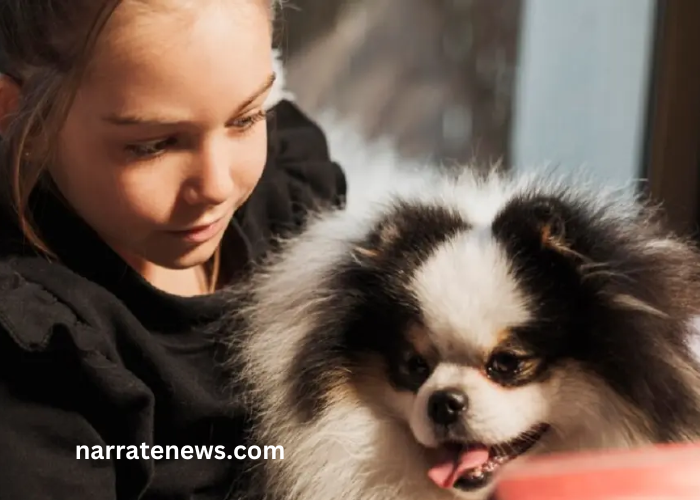
Baby:91jr2ozelcq= puppies
Puppies, often referred to as baby dogs, bring an unparalleled sense of joy, companionship, and love into our lives. They are symbols of innocence and playfulness, embodying the early stages of a dog’s life when everything is new and full of curiosity. This article explores the enchanting world of puppies, delving into their development stages, the responsibilities of caring for them, their impact on human health and emotions, and their role in our society.
Understanding the Concept of baby:91jr2ozelcq= puppies
Neonatal Period (0-2 Weeks)
Puppies are born blind, deaf, and completely dependent on their mother. During the neonatal period, they spend most of their time sleeping and feeding. Their primary activities are limited to rooting and suckling, guided by their sense of touch and smell. At this stage, their eyes and ears are closed, and they rely entirely on their mother for warmth and nutrition.
Transitional Period (2-4 Weeks)
The transitional period is marked by significant physical and sensory development. Around two weeks of age, puppies’ eyes begin to open, and their hearing starts to develop. They become more aware of their surroundings and start to explore their immediate environment. This is also when they begin to stand, walk, and wag their tails. The first signs of social behavior, such as play-fighting with littermates, start to appear during this period.
Socialization Period (4-12 Weeks)
The socialization period is critical for a puppy’s development. During this time, they learn about the world around them, including humans, other animals, and various environments. Positive experiences during this stage are essential for developing well-adjusted adult dogs. Puppies are highly impressionable and can be socialized to accept a wide range of stimuli, which helps prevent fear and aggression later in life.
This period is also when puppies are typically weaned from their mother’s milk and transition to solid food. They begin to form bonds with humans and learn important social cues and behaviors. Early training, such as housebreaking and basic commands, is often introduced during this stage.
Juvenile Period (3-6 Months)
The juvenile period is a time of rapid growth and increasing independence. Puppies become more coordinated and confident, continuing to learn and explore. Training becomes more structured, focusing on reinforcing good behaviors and discouraging undesirable ones. This stage requires consistency and patience from owners, as puppies may test boundaries and display a strong desire to chew and explore.
Caring for a Puppy
Nutrition
Proper nutrition is vital for a puppy’s growth and development. Puppies require a diet rich in proteins, fats, vitamins, and minerals to support their rapid growth and high energy levels. Puppy-specific food formulas are designed to meet these nutritional needs. Feeding should be done at regular intervals, typically three to four times a day, gradually reducing the frequency as the puppy matures.
Health Care
Routine veterinary care is essential for maintaining a puppy’s health. This includes vaccinations to protect against common diseases, deworming to prevent parasitic infections, and regular health check-ups. Spaying or neutering is often recommended to prevent unwanted litters and reduce the risk of certain health issues.
Puppies are also prone to certain health problems, such as digestive issues and infections, due to their developing immune systems. Prompt veterinary attention is crucial if a puppy shows signs of illness, such as lethargy, vomiting, or diarrhea.
Training and Socialization
Training and socialization are crucial aspects of raising a well-behaved and confident dog. Positive reinforcement techniques, such as treats and praise, are effective for teaching basic commands like sit, stay, and come. Consistency and patience are key, as puppies learn through repetition and positive experiences.
Socialization involves exposing the puppy to different people, animals, environments, and experiences in a controlled and positive manner. This helps prevent behavioral issues and ensures that the puppy grows up to be a well-adjusted adult dog.
Exercise and Play
Puppies are naturally energetic and require regular exercise and play to stay healthy and stimulated. Daily walks, playtime, and interactive toys help burn off excess energy and prevent destructive behaviors. Exercise also promotes physical health, strengthens muscles, and supports proper growth.
Play is not only a physical activity but also a critical part of social development. Through play, puppies learn important social skills, such as bite inhibition, and develop their problem-solving abilities.
The Impact of Puppies on Human Health and Emotions
Physical Health Benefits
Owning a puppy can have numerous physical health benefits. Regular walks and playtime with a puppy encourage physical activity, which can help owners maintain a healthy lifestyle. Studies have shown that dog owners are more likely to meet the recommended levels of daily exercise compared to non-owners.
Additionally, interacting with puppies has been linked to lower blood pressure and reduced stress levels. The act of petting a puppy releases oxytocin, a hormone associated with bonding and relaxation, while also lowering cortisol levels, which are associated with stress.
Emotional and Psychological Benefits
Puppies provide emotional support and companionship, which can be particularly beneficial for individuals experiencing loneliness or depression. The unconditional love and affection offered by a puppy can significantly improve an owner’s mood and overall sense of well-being. Puppies also encourage social interaction, as walking a puppy often leads to conversations with other dog owners and pet enthusiasts.
The responsibility of caring for a puppy can also provide a sense of purpose and routine, which is especially important for individuals struggling with mental health issues. The presence of a puppy can act as a calming and comforting influence, helping to alleviate anxiety and provide emotional stability.
Puppies in Society
Service and Therapy Dogs
Puppies that undergo specialized training can become service dogs or therapy dogs, providing invaluable assistance and comfort to people in need. Service dogs are trained to perform specific tasks to aid individuals with disabilities, such as guiding the visually impaired, alerting the hearing impaired to important sounds, or assisting those with mobility issues.
Therapy dogs, on the other hand, provide emotional support and comfort to individuals in hospitals, nursing homes, schools, and disaster areas. These dogs play a crucial role in improving the mental and emotional well-being of those they interact with.
Rescue and Adoption
Adopting a puppy from a shelter or rescue organization is a compassionate choice that can save a life. Many puppies end up in shelters due to abandonment, neglect, or other unfortunate circumstances. By adopting, individuals provide these puppies with a second chance at a happy and healthy life.
Rescue organizations often focus on specific breeds or situations, such as puppies from puppy mills or those affected by natural disasters. These organizations work tirelessly to rehabilitate and rehome puppies, ensuring they find loving and permanent homes.
Puppies in Media and Culture
Puppies have a significant presence in media and popular culture, often symbolizing innocence, playfulness, and unconditional love. They appear in movies, television shows, advertisements, and social media, capturing the hearts of audiences worldwide. Iconic fictional puppies, such as Lassie, Scooby-Doo, and the puppies from “101 Dalmatians,” have become beloved characters that continue to influence and inspire.
Puppies also play a role in raising awareness about animal welfare issues. Campaigns featuring puppies are often used to highlight the importance of responsible pet ownership, the benefits of spaying and neutering, and the need to support animal shelters and rescue organizations.
Conclusion
Puppies, with their boundless energy, curiosity, and affection, enrich our lives in countless ways. From their early developmental stages to their integration into human society as companions, service animals, and cultural icons, puppies leave an indelible mark on our hearts and minds. Caring for a puppy requires dedication, patience, and responsibility, but the rewards of companionship, improved health, and emotional well-being make it a deeply fulfilling experience.
As we continue to appreciate and celebrate the joy that puppies bring into our lives, it is essential to promote responsible pet ownership, support animal welfare initiatives, and recognize the profound impact that these small, furry bundles of joy have on our world. By doing so, we ensure that puppies continue to thrive and bring happiness to generations to come.


